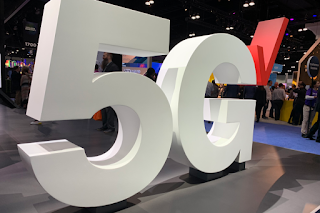In 2020, Verizon will continue to build its 5G network focusing on providing a differentiated experience in public spaces, continue to advance 4G LTE and fiber networks, expand its Mobile Edge Compute technology to usher in an era of extremely low-latency applications for businesses and consumers, and ensure strong ecosystems around all of these technologies and networks to speed new services and capabilities to market.
In a press statement, Verizon outlined key achievements in network technology for 2019, including:
- Verizon the first in the world to launch a commercial 5G mobile network with a commercially available 5G-enabled smartphone. In early April, Verizon activated its 5G Ultra Wideband mobility network in Chicago and Minneapolis and 5G is now live in 31 Cities.
- Verizon was first to market in the US with the new Samsung Galaxy S10 5G on the Verizon 5G Ultra Wideband network
- Verizon launched 5G in 16 NFL stadiums and four indoor basketball arenas
- Verizon offered seven 5G devices including the first ever 5G mobile hotspot, the business-ready Inseego 5G MiFi M1000 – the most devices available on a 5G network.
- Verizon sponsored a number or 5G Challenges – providing either financial support or opening one of its Labs to help companies in a variety of different industries to develop 5G solutions they believe will upend their corners of the world and transform the way people live, work, and play.
- In addition to its 5G lab in New York City, Verizon built additional 5G innovation hubs in Los Angeles, Palo Alto, Washington, DC, and Cambridge.
- Verizon opened the world’s first 5G production studio at RYOT in Los Angeles to create content for immersive entertainment
- Verizon teamed up with Sony and NBC to show how Verizon 5G Ultra Wideband, Sony’s transmitter box and 5G device can support live sports broadcasts.
- Verizon announced a collaboration with Corning to create the factory of the future with 5G
- Verizon lit up the first 5G Shipyard in Newport News
- Verizon launched the world’s first Multi-Access Edge Compute (MEC) platform to the developer community, helping accelerate the creation of applications that can fully utilize the speed and low latency that 5G UWB promises.
- Verizon is partnering with AWS Wavelength to provide developers the ability to deploy applications that require ultra-low latency to mobile devices using 5G. Its first MEC market is Chicago.
- Verizon continues to virtualize its network to enable faster deployment of new services and technology.
- Verizon claims to be first in the world to launch cloud native container-based tech on a wireless network.
- Verizon launched its NB-IoT network
- Verizon activated CBRS shared spectrum, a unique solution providing greater speeds and capacity for customers, especially in densely populated areas and venues.
- Verizon demonstrated the customer benefits stemming from a bonded ONT on its fiber network, delivering up to 34 Gbps to a customer’s location.
- Verizon demonstrated applications in traffic and infrastructure management and public safety stemming from technological advancements in fiber sensing.
- Verizon built a fiber-based video distribution network connecting the NBA’s 29 arenas.
https://www.verizon.com/about/news/verizons-vision-2020-network-technology













